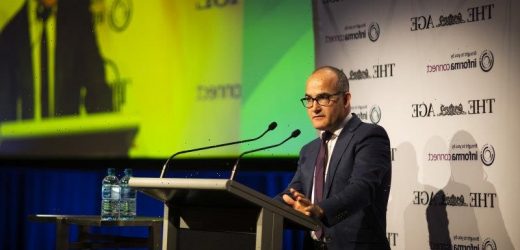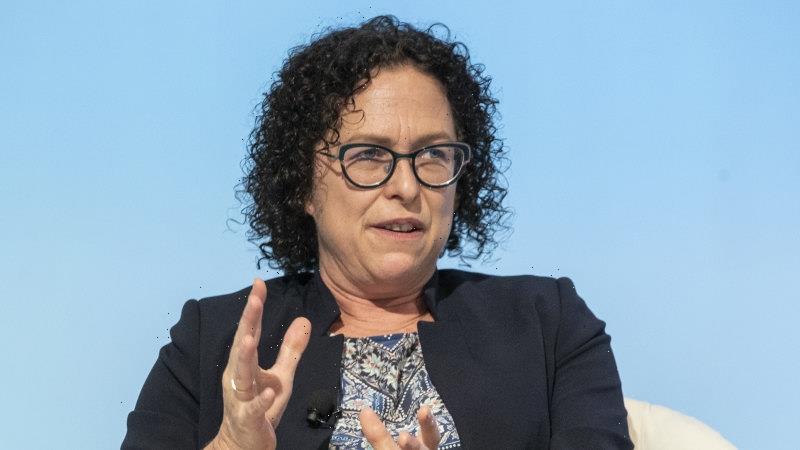Mental health will be at the centre of next month’s state budget and schools will play a crucial role in rolling out the government’s mental health package, acting Premier James Merlino has revealed.
In a speech to The Age Schools Summit on Tuesday, Mr Merlino also announced new funding to boost Indigenous school attendance and revived calls for all Australian schools to deliver Victoria’s Respectful Relationships curriculum.
Acting Premier James Merlino speaking at The Age Schools Summit.Credit:Meredith O’Shea
Mr Merlino said his government’s dual focus for schools this year was helping students catch up after almost two terms of remote learning last year and cushioning the impact on their mental health and wellbeing.
In one of his first indications of what Victoria’s May 20 budget will centre on, the acting Premier said mental health will become a key focus in Victorian schools “over the course of the next few years”.
“We handed down the mental health royal commission earlier this year and we’ve got the state budget coming up in May,” he said.
“And the big theme, and we’re not giving out any state secrets, the big theme of the budget will be our response to the mental health royal commission.
“We’ve got some exciting things we’re thinking about and will be implemented in our schools.”
Mr Merlino, who has been Education Minister since 2014, said the mental health consequences of COVID and Victoria’s long lockdown would have a “long, long tail” for the state’s 1 million-plus students.
“Nothing about last year was easy,” he said. “Remote learning amplified existing inequalities.
“Anxiety spiked for students and for staff. I’ll give you one example, at the height of the pandemic eating disorder presentations to emergency departments by young people rose by a shocking 51 per cent on the previous year.”
Mr Merlino also revealed close to $3.7 million in funding to boost Indigenous school attendance by funding consultation for Indigenous groups and families to discuss what is and isn’t working in schools.
Mr Merlino said while Victoria had successfully boosted the number of Indigenous children attending kindergarten, excelling in NAPLAN, and completing their VCE, school attendance remained stubbornly low.
“These findings will then be used to help our schools, better support for Koori students. There’s no better way to provide advice on how we can better support Koori students, particularly on that stubborn, wicked problem of attendance, than the families, communities, and Koori students themselves.”
Mr Merlino also revived calls for all Australian schools to roll out Victoria’s Respectful Relationships curriculum, which is mandatory in all state schools and been adopted by more than 309 private schools across the state.
“We want that [non-government school] figure to be much, much higher, so we’ve opened a new expression of interest process, providing another opportunity for non-government schools to sign up,” Mr Merlino said.
“And I want to see every single school across the nation implement this program.”
From this term, all government schools will teach consent in age-appropriate ways.
Jenny Atta, secretary of Victoria’s Department of Education and Training, said the government would look to maintain online and telehealth mental health services, particularly in rural and remote schools.
“We think we can capitalise on … where some of that health and wellbeing support was able to be provided remotely and we relied on that a little more last year,” Ms Atta said.
“So where that is a necessity, we’ve got some more confidence about how that can happen.”
Catch all the day’s headlines
At the end of each day, we’ll send you the most important breaking news headlines, evening entertainment ideas and a long read to enjoy. Sign up here.
Most Viewed in Politics
From our partners
Source: Read Full Article



